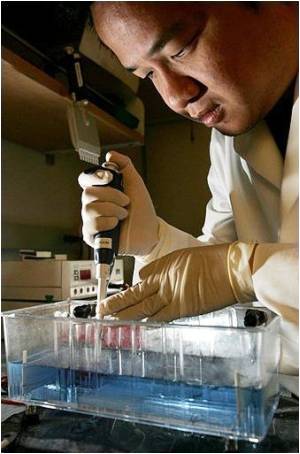A soft tissue found in the foetus during the early stages of development plays an important role in the formation of mature insulin-producing cells, finds study.

During the late stages of development in mice, this foetal tissue-called the mesenchyme-secretes chemicals. Those chemicals enable insulin-producing beta cells to mature and expand.
When this mesenchyme tissue was removed, the researchers found that the mice do not grow their full complement of beta cells.
By identifying the chemicals that this tissue secretes, scientists may be able to create new beta cells in the body or in the test tube-something currently beyond the reach of medical science.
"If we can identify all these chemical factors, there is a possibility that we could generate fully functional beta cells from stem cell populations. Also, such molecules might allow us to increase beta cell numbers in people with Type 2 diabetes, whose level of insulin production is impaired," said Matthias Hebrok, PhD, who directs the UCSF Diabetes Centre.
The finding was reported in the journal PLoS Biology.
Advertisement









